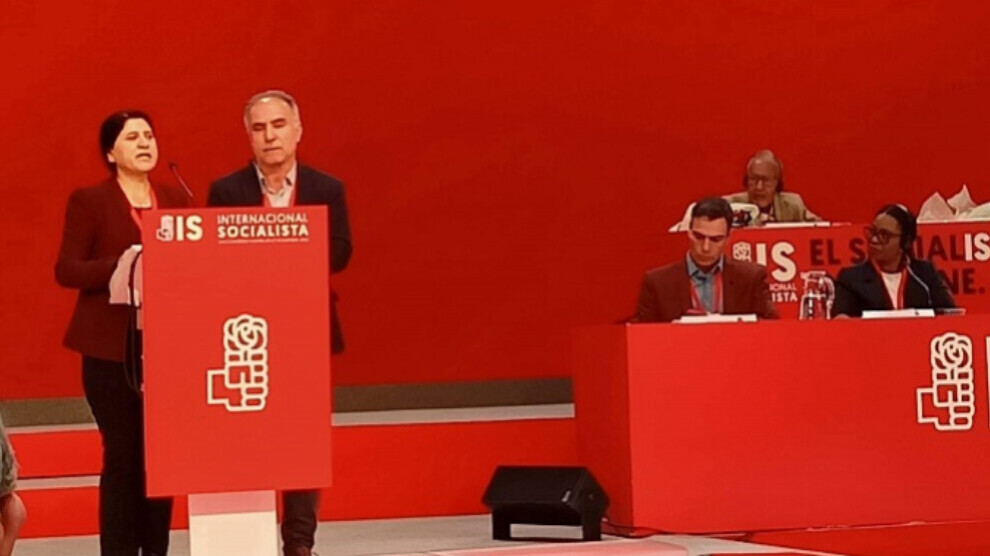Socialist Internationalist demand Turkish attacks on Kurds to stop
The XXVI Socialist Internationalist Congress demanded an immediate stop to all military operations against Kurds.
The XXVI Socialist Internationalist Congress demanded an immediate stop to all military operations against Kurds.

The PYD co-chair, Asya Abdullah, demanded at the XXVI SI Congress in Madrid, that the organization take a firm stance against Turkish aggression of Rojava.
The Congress was held in Madrid and ended on Sunday. The Congress approved a motion demanding Turkey to immediately end all military operations against Kurds.
The motion reads as follows: "The ongoing war against the Kurdish people in all parts of Kurdistan for decades, has recently entered a dangerous historical turning point that threatens the existence of the Kurdish people, and undermines security and stability in this part of the world.
The nation who was able to defeat the fiercest terrorist organization in human history (ISIS) in Iraqi Kurdistan and Rojava today is facing a war of initiation, aimed at destroying the Kurdish society with all its components, from the cultural and civilizational aspects, as well as destroying the infrastructure in addition to the settlements policy that leads to demographic change in the region, which it increases the suffering of the Kurdish people.
The Socialist International is the organization for peace and democracy in all parts of the world, so stand in solidarity with the Kurdish people in their struggle for their legitimate rights. We demand the cessation of all kinds of war against the Kurdish nation, military, cultural and economic, and we stress that there is no military solution to this issue. We demand an immediate stop to all military operations because it increases the opportunity for ISIS to regroup. The solution to this issue is possible only through political dialogue between all parties. Such a solution will bring security and stability to the region and this in turn will reflect positively on the whole world in general and Europe in particular."